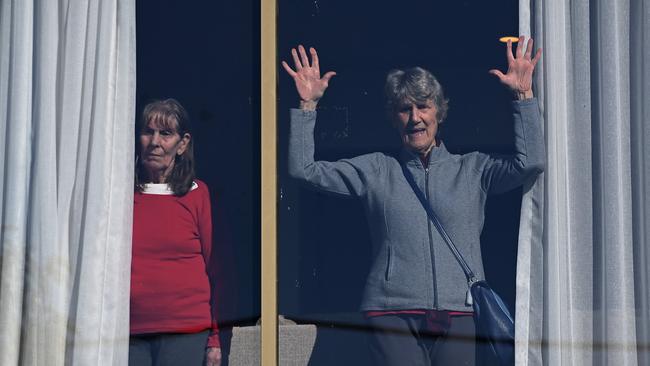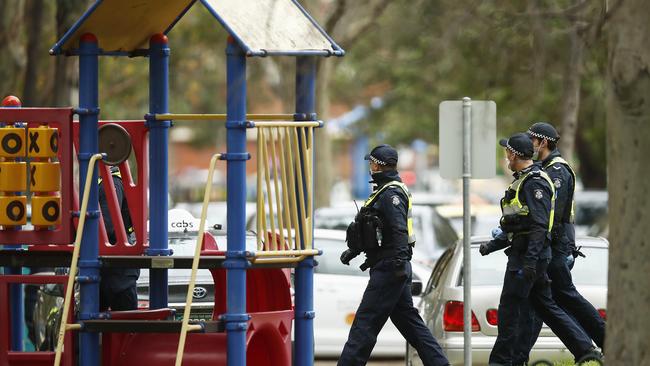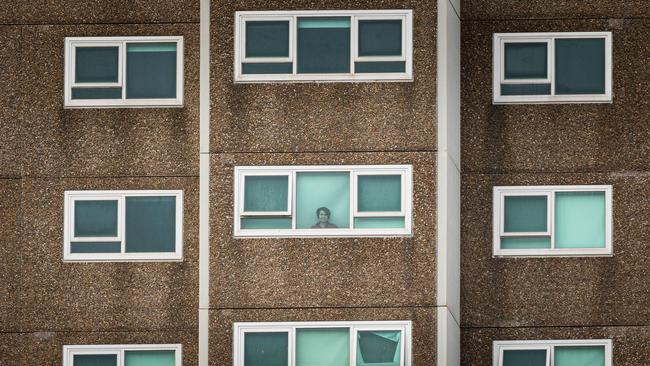Covid-19 restrictions saved lives but also destroyed them. This inquiry is needed


We threw our thermos of hot water over the tyre, the only water we had, and called the NRMA. The tyres were run-flats, designed to be fine to be driven on to the tyre shop in an emergency, but not apparently at 110km/h for kilometres on end.
The journey was a mercy dash. It was early spring 2021 and my dad was dying of cancer. He lived in Tweed Heads, just south of the Queensland border. Being on the NSW side — though locked down, along with Victoria and Queensland — we were able to travel to spend his last weeks with Dad. Under NSW’s lockdown laws, travel to visit dying relatives was allowed under compassionate exemptions. Had Dad lived on the other side of the border, it would have been difficult to see him at all, a reality tragically experienced by many families in Queensland whose loved ones spent the last days of their lives separated from families across the border. Not to mention the children who were barred from crucial surgeries over the border when Queensland refused to relax their laws.
But back to the tyre. It was difficult trying to find the tyre we needed in stock in any of the outlets in Kempsey. But we finally found one shop that had one of the pretty rare type of run-flats needed for Mum’s car. The mechanic in charge however, didn’t want to sell it to us because we were travelers from Sydney. He was worried he would get in trouble with the authorities for selling a tyre to people who may have been breaching the lockdown laws. He only agreed to sell the tyre after we sent him photos of all of our paperwork authorising our compassionate exemption from the Sydney lockdown. Not quite sure how supplying a tyre to potential miscreants could have contributed to the spread of Covid-19.

The militant Covid lockdown response by the states turned ordinary people into citizen police, but the role of the actual police was even worse, with people just trying to escape their houses for half an hour and have a coffee on a park bench slapped with $1000 fines in NSW. Their crime? Not exercising. Needless to say these fines have now been waived en masse.
The police response and state government decisions in particular on lockdowns are not within the Federal Covid-19 inquiry’s specific terms of reference. This seems madness given that it was the state lockdowns that impacted people’s ordinary lives in the most profound manner and made Australia’s response to the pandemic, particularly the extraordinarily brutal Melbourne lockdowns, notable and unusual in global terms. We did well overall, yes, and much was justified in the public health interest. But by the same token, some aspects of the response were disproportionate and amounted to well-intentioned cruelty.
Lockdowns were imposed most harshly on the disadvantaged in southwest Sydney and on people living in Melbourne’s public housing towers. School children missed months on end of vital education. Teenagers retreated into themselves. Depression and anxiety in kids and young people skyrocketed. Families are still coping with the aftermath. Women gave birth amid extraordinary restrictions, sometimes without their partners. Grandparents couldn’t meet newborn babies until they were sometimes six months or more old. Old people fared the worst, locked in nursing homes and spiralling into despair, the health of those with dementia plummeting. Mobile phone calls from behind windows could not replace the human touch.

For us, we were able to spend those precious last weeks with Dad. But when he took a downward turn, with my sister by his side as the ambulance picked him up from his home and he was admitted to hospital, staff placed an iron curtain around Dad. When my sister inquired as to whether she could visit him that sad Sunday in hospital, she was informed that visiting was only allowed if people were in palliative care, and that Dad definitely wasn’t about to die. A few hours later, he did. Alone.
This is one story, and we feel lucky in the scheme of things that we were able to spend those last days with Dad. But it seems clear that an examination of whether Australia’s hardline response to Covid-19 state to state is proportionate and justified is necessary. The states — their hospitals and health systems, their chief health officers, their police forces — were the key antagonists in the pandemic response. Australians care about what affected their lives, not issues of high-level governance, however important that may be.
Australians were extraordinarily compliant during the pandemic even in the face of harsh restrictions. We did our bit. But if people whose lives were impacted in the most profound of ways do not believe or understand that the government did what it did because it was necessary, trust is undermined. And if the next pandemic comes along in our lifetimes, we will remember.



My mum and I were driving down the Pacific Highway at 110 kilometres an hour when we noticed a thumping sound. The right back tyre of her car was rapidly going flat, and when we pulled over on the side of the highway and inspected, the tyre was smoking like it was about to catch fire.